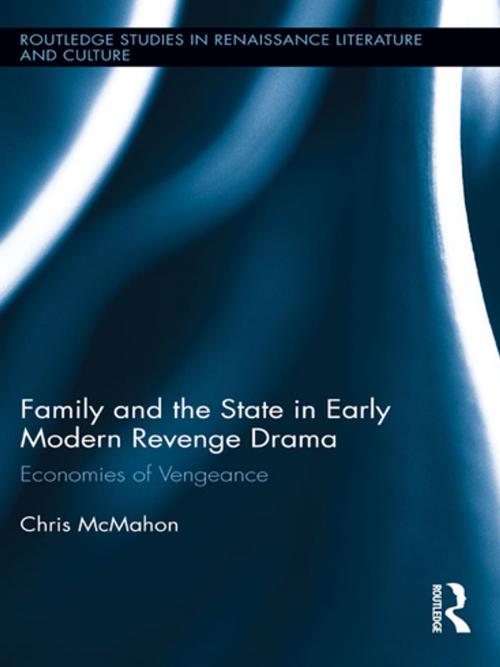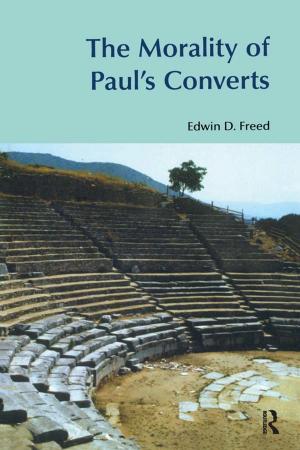Family and the State in Early Modern Revenge Drama
Economies of Vengeance
Fiction & Literature, Literary Theory & Criticism, Drama History & Criticism, British| Author: | Chris McMahon | ISBN: | 9781136496288 |
| Publisher: | Taylor and Francis | Publication: | November 27, 2012 |
| Imprint: | Routledge | Language: | English |
| Author: | Chris McMahon |
| ISBN: | 9781136496288 |
| Publisher: | Taylor and Francis |
| Publication: | November 27, 2012 |
| Imprint: | Routledge |
| Language: | English |
In this book, McMahon considers Early Modern revenge plays from a political science perspective, paying particular attention to the construction of family and state institutions. Plays set for close study are The Spanish Tragedy, Hamlet, The Revenger’s Tragedy, The Malcontent and The Duchess of Malfi. The plays are read as unique events occupying positions in historical process concerning the privatisation of the family (by means of symbolism and concrete household strategies such as budgeting and surveillance) and the subsequent appropriation of the family and its methods by the state.
The effect is that family becomes an unofficial organ of the state. This process, however, also involves the reform of the state along lines demanded by the private family. McMahon’s critical method, derived from the theory of Bourdieu, Bataille, and Girard, maps capital transactions to reveal emotionally charged, often idiosyncratic responses to issues of shared concern. Such issues include state corruption, the management of women, the performance of roles according to gender, the uses of surveillance, and the ethics of sacrifice.
In this book, McMahon considers Early Modern revenge plays from a political science perspective, paying particular attention to the construction of family and state institutions. Plays set for close study are The Spanish Tragedy, Hamlet, The Revenger’s Tragedy, The Malcontent and The Duchess of Malfi. The plays are read as unique events occupying positions in historical process concerning the privatisation of the family (by means of symbolism and concrete household strategies such as budgeting and surveillance) and the subsequent appropriation of the family and its methods by the state.
The effect is that family becomes an unofficial organ of the state. This process, however, also involves the reform of the state along lines demanded by the private family. McMahon’s critical method, derived from the theory of Bourdieu, Bataille, and Girard, maps capital transactions to reveal emotionally charged, often idiosyncratic responses to issues of shared concern. Such issues include state corruption, the management of women, the performance of roles according to gender, the uses of surveillance, and the ethics of sacrifice.















